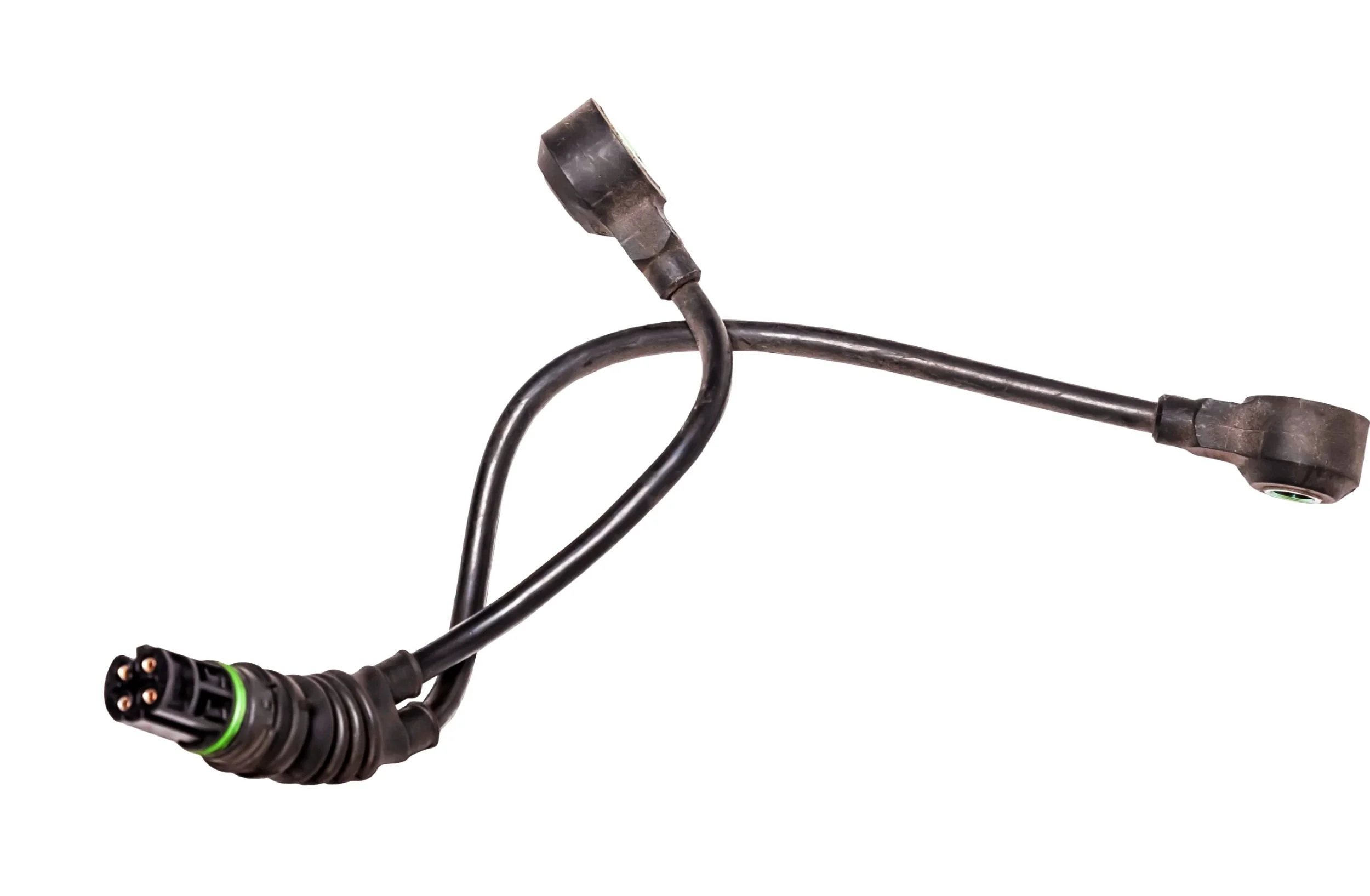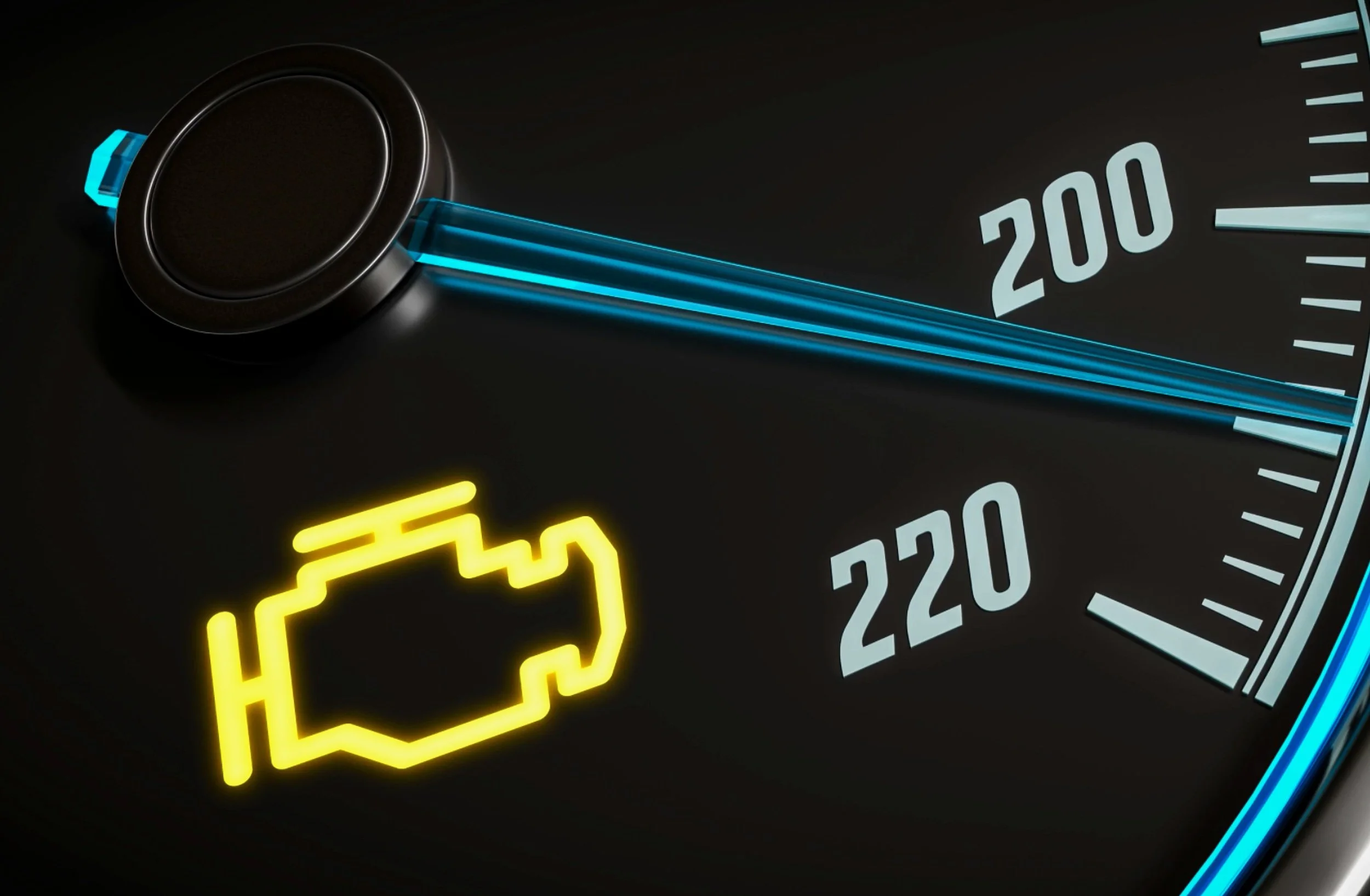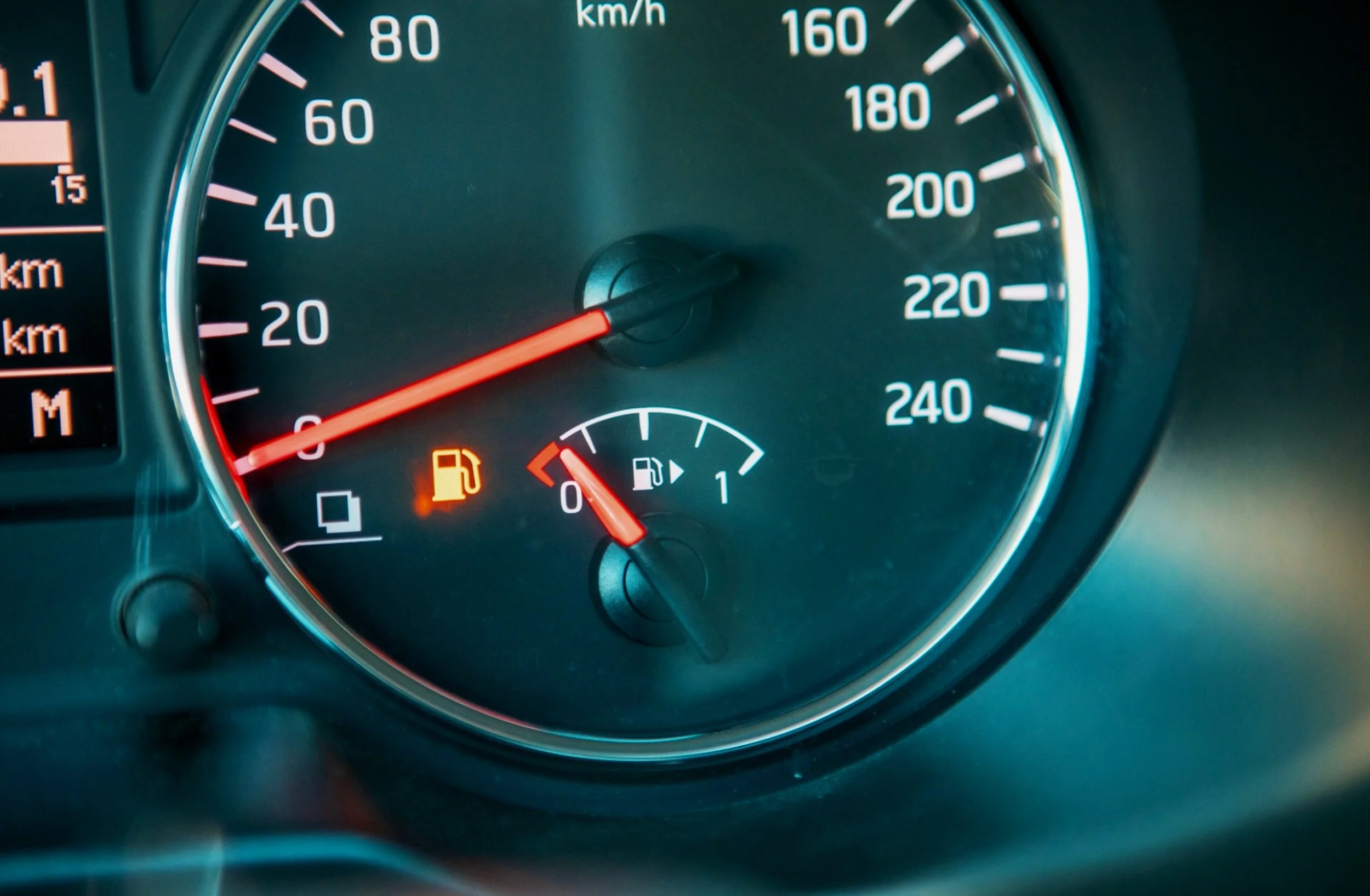4 SYMPTOMS OF A BAD KNOCK SENSOR
The purpose of the knock sensor is to send a signal to the ECM (engine control module) when it senses unwanted vibrations in the engine. For example, if there is an engine knock which basically means there's a mini detonation after the spark plug ignites, the knock sensor will read this vibration, create an AC voltage and send it to the ECM. Then, the ECM will try to prevent this from happening again by retarding the ignition timing. In other words, changing when the spark plug ignites the air-fuel mixture. This helps prevent serious damage to your engine.
location
Some cars have more than one knock sensor and the location varies from car to car. Personally, I've seen it underneath the intake manifold, and on the lower side of the engine right above the starter. If you're having trouble finding it, I suggest getting a repair manual for your specific make and model.
symptoms
check engine light
The first symptom of a bad knock sensor is having your check engine light on. If the ECM senses something wrong with the knock sensor these codes may pop up:
P0324
P0325
P0326
P0327
P0328
P0329
P0330
P0331
P0332
P0333
P0334
Ensure you can access your car's diagnostic codes by acquiring an OBD2 scanner here.
POOR PERFROMANCE
The second symptom of a faulty knock sensor is poor engine performance. You’ll feel a lack of acceleration and your vehicle will overall be slower. A bad knock sensor reading can trick the engine control module to believe that there is a detonation, which will lead to the ECM changing the ignition timing when it’s not needed. This will cause poor combustion efficiency. In some situations, the ECM can purposely limit you to a certain speed to protect your vehicle if it senses the knock sensor is dysfunctional.
Poor fuel economy
The third sign of a faulty knock sensor is poor fuel economy. Leading back to the previous example, since combustion efficiency decreases when the ECM changes the ignition timing, this will cause poor gas mileage.
knocking noise
The last symptom is a knocking noise. Some people describe it as a metallic noise while the engine is running. Again, the purpose of the knock sensor is to detect unwanted detonations and relay the information to the ECM to change the ignition timing to fix the issue. Therefore, if the sensor is failing, the engine control module won’t be able to know exactly when to change the ignition timing. This will result in unwanted detonations in the combustion process.
Before concluding you have a bad knock sensor, always make sure to look for torn wiring or corrosion on the connectors, as these can also cause similar symptoms.
Check out my YouTube video!
Disclaimer: Some links in this article may be affiliate links.






